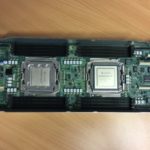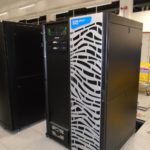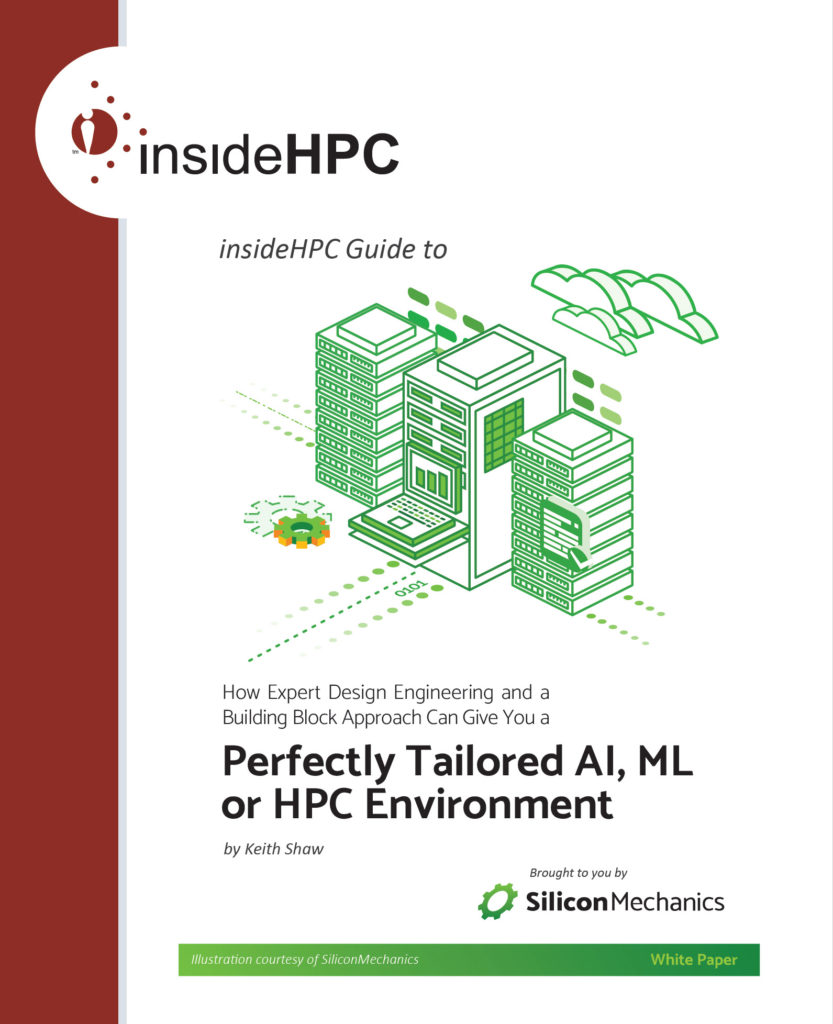Brent Gorda from Arm gave this talk at the Linaro Connect conference. “Arm-based systems are showing up in the HPC community and new silicon is coming. The architecture has also been selected for several of the exascale projects worldwide. Brent will talk about the aspects of Arm that are attractive to the HPC community, updates on projects and what we as a community can do to help accelerate adoption in this space.”
An Update on ARM in HPC
Advanced Computing: HPC and RDS at University of Bristol

Simon Burbidge from the University of Bristol gave this talk at the HPC User Forum. “Our research focuses on the application of heterogeneous and many-core computing to solve large-scale scientific problems. Related research problems we are addressing include: performance portability across many-core devices; automatic optimization of many-core codes; communication-avoiding algorithms for massive scale systems; and fault tolerance software techniques for resiliency at scale.”
HPE Teams with University of Bristol for ARM-based HPC

Today the University of Bristol announced an initiative to accelerate the adoption of
ARM-based supercomputers in the UK. “HPE is excited to work with Arm, SUSE, and other key partners to offer the HPC community a fresh alternative for high performance computing which we believe will stimulate the industry to develop increasingly performant and efficient supercomputing solutions. By investing in this deployment through the Catalyst UK programme, HPE and our partners will drive both digital transformation and sustainable economic growth through new innovation and scientific discovery.”
First Public Disclosure of Isambard Supercomputer Performance Results

Prof. Simon McIntosh-Smith from the University of Bristol gave this talk at the GoingARM Workshop. “Isambard is a unique system that will enable direct ‘apples-to-apples’ comparisons across architectures, thus enabling UK scientists to better understand which architecture best suits their application.”
GW4 Unveils ARM-Powered Isambard Supercomputer from Cray

Today the GW4 Alliance in the UK unveiled Isambard, the world’s first ARM-based production supercomputer at today’s Engineering and Physical Sciences Research Council (EPSRC) launch at the Thinktank science museum in Birmingham. “Isambard is able to provide system comparison at high speed as it includes over 10,000, high-performance 64-bit ARM cores, making it one of the largest machines of its kind anywhere in the world. Such a machine could provide the template for a new generation of ARM-based services.”
UK to Launch Six HPC Centers

The UK is launching six HPC centers this month. Funded by £20 million from the Engineering and Physical Sciences Research Council (EPSRC) the centres are located around the UK, at the universities of Cambridge, Edinburgh, Exeter, and Oxford, Loughborough University, and UCL. “These centres will enable new discoveries, drive innovation and allow new insights into today’s scientific challenges. They are important because they address an existing gulf in capability between local university systems and the UK National Supercomputing Service ARCHER,” said Professor Philip Nelson, EPSRC’s Chief Executive.
Future Technologies on the Rise for HPC
“2017 will see the introduction of many technologies that will help shape the future of HPC systems. Production-scale ARM supercomputers, advancements in memory and storage technology such as DDN’s Infinite Memory Engine (IME), and much wider adoption of accelerator technologies and from Nvidia, Intel and FPGA manufacturers such as Xilinx and Altera, are all helping to define the supercomputers of tomorrow.”
Radio Free HPC Looks at the New Isambard Supercomputer from Cray

In this podast, the Radio Free HPC Team looks at the Cray’s new ARM-based Isambard supercomputer that will soon be deployed in the UK. After that, we discuss how Persistent Memory will change the way vendors architect systems for Big Data workloads.
Cray to Develop ARM-based Isambard Supercomputer for UK Met Office

“This is an exciting time in high performance computing,” said Prof Simon McIntosh-Smith, leader of the project and Professor of High Performance Computing at the University of Bristol. “Scientists have a growing choice of potential computer architectures to choose from, including new 64-bit ARM CPUs, graphics processors, and many-core CPUs from Intel. Choosing the best architecture for an application can be a difficult task, so the new Isambard GW4 Tier 2 HPC service aims to provide access to a wide range of the most promising emerging architectures, all using the same software stack.”




